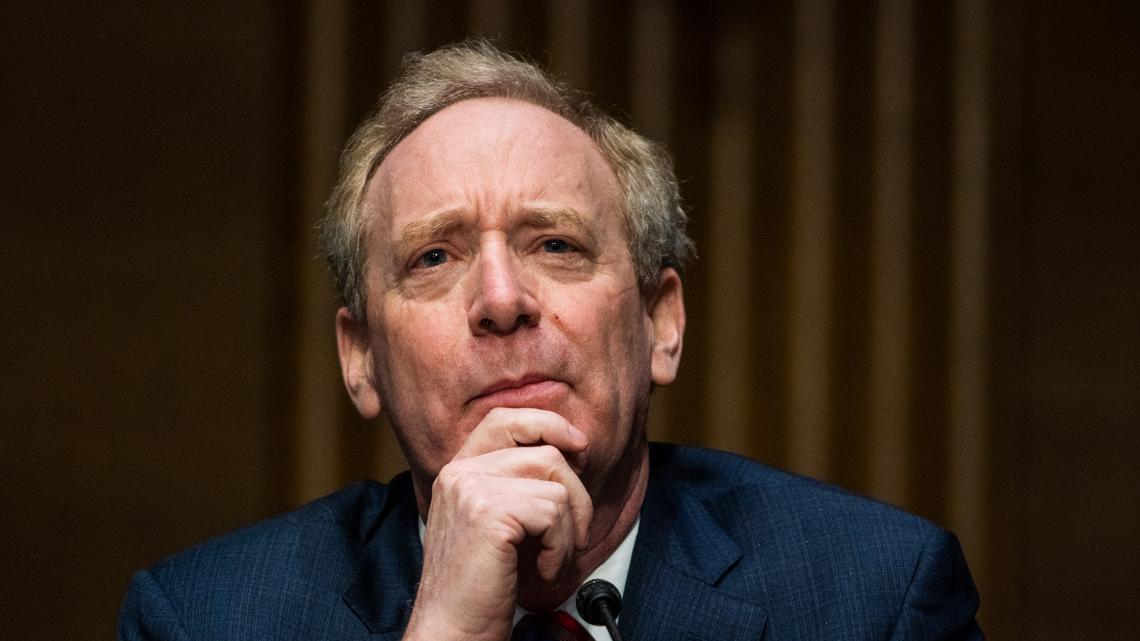
Microsoft president talks $4B AI investment amid sweeping layoffs: ‘We have to prioritize’
作者:Author: Christian Balderas
The company has laid off roughly 15,000 employees globally since May, including 3,120 workers in Washington state by Aug. 1.
SEATTLE — Microsoft on Wednesday announced a $4 billion global initiative to expand access to artificial intelligence training — a major investment that comes as the company lays off thousands of workers.
Unveiled at Seattle’s Museum of History & Industry, the five-year program, called Microsoft Elevate, aims to train 20 million people in AI skills through a new Elevate Academy and partnerships with schools, colleges, and nonprofits. Microsoft President Brad Smith said the goal is to “democratize access to AI.”
Washington state is expected to receive more per-capita funding from the initiative than any other region, Smith said. At least $1 million will go directly to grants, and some will support the donations of AI tools and cloud technology.
The announcement follows sweeping job cuts at Microsoft. The company has laid off roughly 15,000 employees globally since May, including 3,120 workers in Washington state by Aug. 1, according to the state’s Employment Security Department.
The Elevate initiative is separate from Microsoft’s previously announced $80 billion plan to build data centers for AI model training and cloud infrastructure.
KING 5’s Christian Balderas spoke with Smith following the announcement. Portions of the interview have been edited for clarity and length.
How can Microsoft build trust in AI among skeptics?
I think one of the best ways to build confidence is to help people acquire the skills to put new technology, like AI, to work. This has always been true for, say, digital computing going back to the beginning of the PC era. That’s why we launched an important initiative for Microsoft this week, a new part of the company called Microsoft Elevate.
Can you address concerns and criticism that AI will erode critical and creative thinking in the classroom?
I think the key is always to help people learn not just how to use technology, but when to use it and when to stop using it. The great thing about AI as a tool — I find in my own life and in my own work — is I can do research. I can get answers to questions faster than ever before, or I can get some help as I start writing.
But there's an equally important piece: don't stop thinking. Use it to think more. Use it to write more. Use it to help with the first draft, but don't take it as the finished product.
When you think about it in those terms, what you recognize is that the skills that people need to master are not just technological skills.
How do you establish guardrails and what responsibility does Microsoft have in establishing that?
I really think of the guardrails that we need as almost having two parts.
The first is what we build into the product itself. It has features that protect our privacy, protect our security — that are accountable so that AI always remains under human control.
But the other part, as is the case for any tool, is to help people learn how to use it. Think of a car. It has a speedometer and a seatbelt. They’re fundamentals that automakers include in every car. But people still have to put on the seatbelt, and it's their responsibility to drive under the speed limit.
Microsoft has invested billions of dollars in AI development, but it's resulted in a real human cost. Since May, 15,000 people have lost their jobs. Microsoft Elevate’s slogan is ‘putting people first.’ How do you reconcile that?
Businesses always have to make hard choices. We have to prioritize. And throughout my 32 years working at Microsoft, there have been times periodically when we've had to reduce the number of jobs we have.
If there's one thing I've found, it's that each time we've done that, thankfully, we've done it in a way that enabled us to reprioritize, and it created the next five years of economic growth through the new foundation we created. But the second thing that I just think is so important is that we always have to remember that these are hard days.
They're hard days for the individuals that are affected. We strive to be very thoughtful in the way we make these decisions, to be compassionate — to the extent one can — and help people, informing them in person and then providing an above-market severance package.
But at the end of the day, we're not going to sugarcoat hard news. It's a hard day. We have to do it the best we can.
People are going to continue to lose their jobs. Any message to those employees who lost their jobs who say, ‘This is not fair?’
My message to all our employees who lost their jobs is to say in public what I said in private: We recognize this wasn't easy. It was hard. We recognize that this wasn't because people were doing a poor job. These people were doing a good job. But the economy is changing, and we have to adapt with it.
If we're going to remain successful over the long term, I hope we're giving people the kind of financial severance package that will enable an easier transition, even in difficult circumstances, because I would never want to suggest that any of this is easy.
But even more than that, I always want to say thank you to everyone who contributed while they worked here. No one will ever take that away, and no one will ever erase the appreciation that we have for what people have done. And I want everyone in the world and in this region to know there's some great talent there that is hitting the market.
